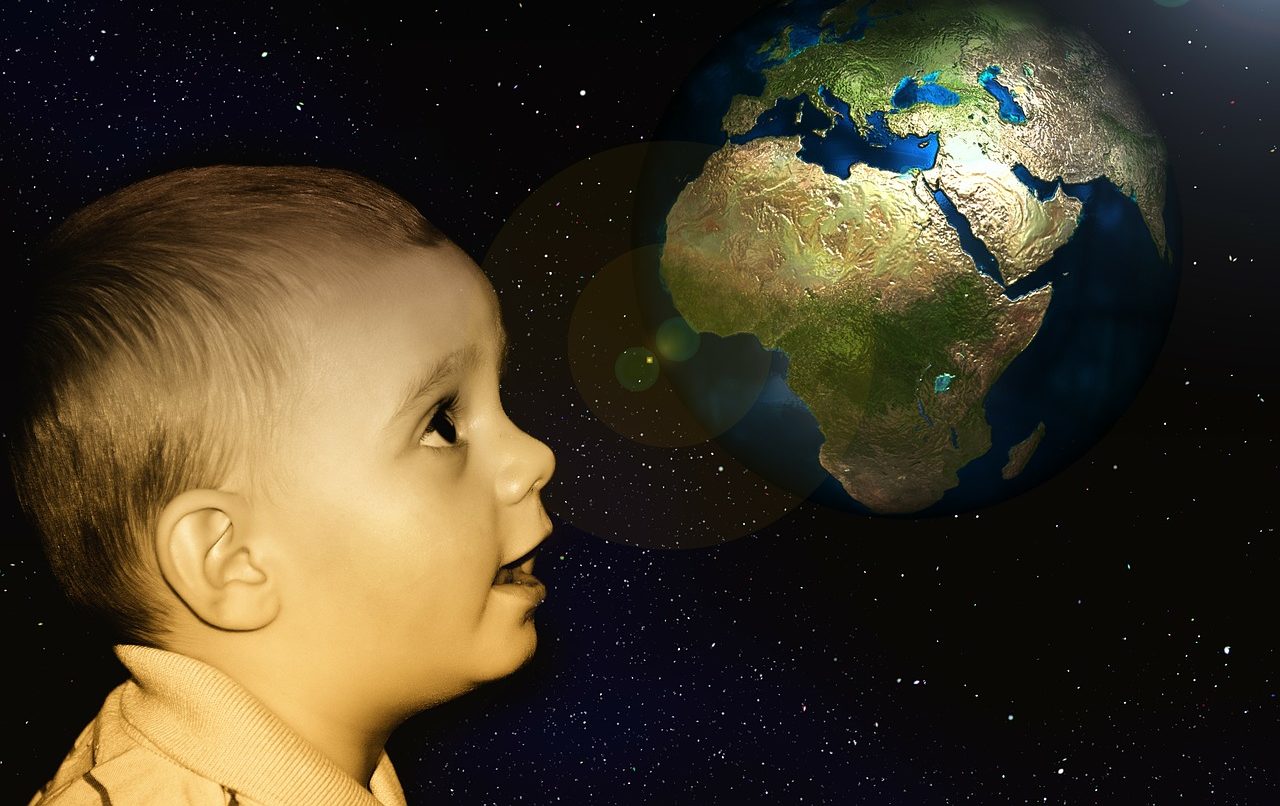
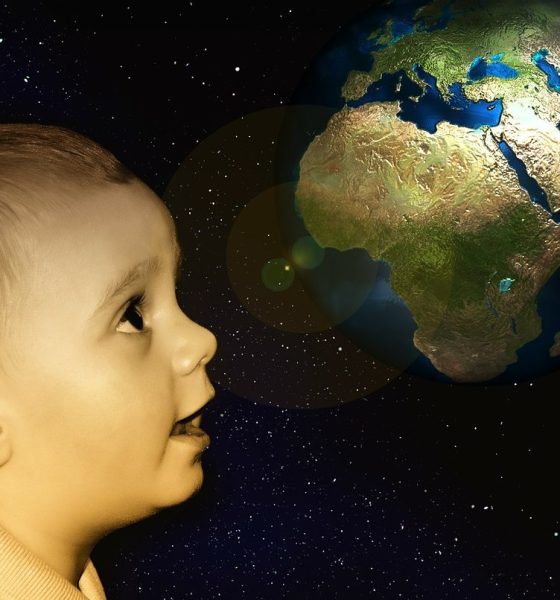
Lifestyle
Bio-tech firm to create human embryo in space, aims to birth first extraterrestrial in 2024
When it comes to entrepreneurship in space, all kinds of ideas come to mind: Selfies, asteroid mining, hotels… Human reproduction? Why not? Elon Musk once endeavored to achieve something similar to mice.
At first glance, a story about a human mother giving birth while in orbit may come across as a tabloid feature. However, after considering the details behind one company’s objective to do this very thing, the realism sets in. With off-planet colonization seemingly in our near future, SpaceLife Origin has taken up the mantle of the inevitable next steps in our species’ long-term plans.
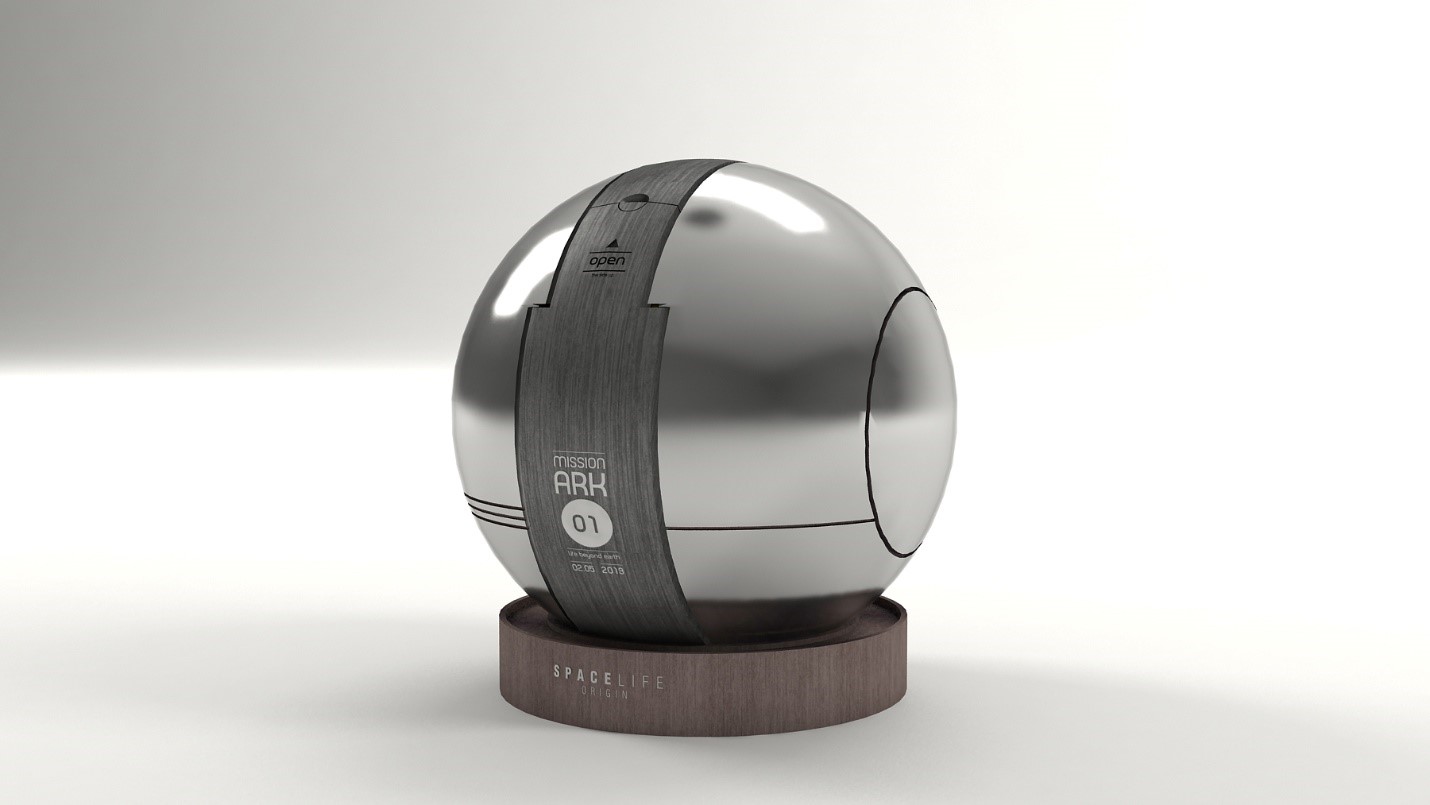
While companies like Virgin Galactic and Blue Origin aim to use tourism as a mechanism to increase the human presence in space, SpaceLife Origin wants to help preserve its customers’ DNA. The company is currently planning missions for the year 2020 which will use patent-pending technology inside capsule “arks” full of one thousand protected tubes of human reproductive cells each.
Some of these arks will be stored in locations on Earth, and some will be stored in an orbiting space satellite with live footage available any time for customers whose “seeds” are stored on the vessel. The cells will be protected for at least 100 years from any Earth-based catastrophe, or so goes the company’s stated objective. With the cost of satellite launches decreasing thanks to the growing “new space” industry, this step in the plan is perhaps the most achievable of the three steps it has named.
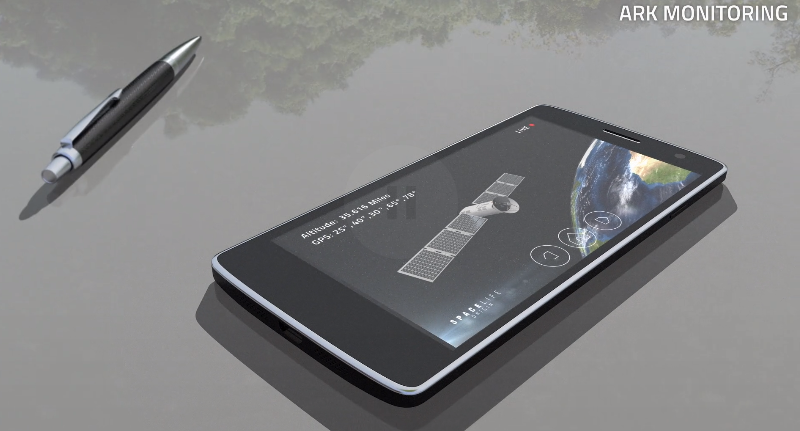
The second step in the company’s plan is to achieve conception in space by 2021 via its “Lotus” mission. Using a proprietary “Space-Embryo-Incubator”, male and female reproductive cells will be united in orbit, returned to Earth, and then implanted into their mothers assuming the technology succeeds in both fertilization and achieving viability. Here is where the science fiction aspect really begins; however, SpaceLife Origin is arguably just expanding on existing in-vitro fertilization (IVF) technology from Earth to include a freefall environment.
The final step in SpaceLife Origin’s goal of achieving off-planet human reproduction is its “Cradle” mission. By 2024, the company hopes to have succeeded in enough technology innovation to support the birth of a human baby in space. The company will likely face many hurdles in creating this reality, ethical questions being a major point, but the challenge doesn’t appear to be a deterrent.
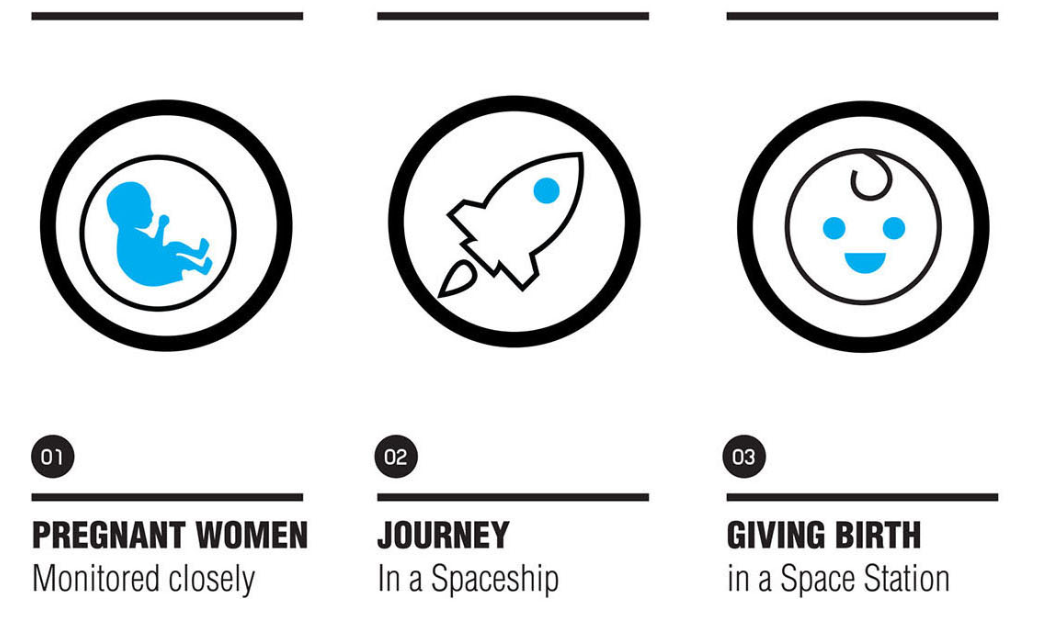
According to a recent press release, SpaceLife Origin estimates an available customer base of 30+ million individuals worldwide. With its ark missions price range beginning at $30,000 and conception missions beginning at $250 million, the company clearly hopes to have the financial backing for its technological development needs. Also of interest is SpaceLife Origin’s status as a non-profit: For every 750 commercial DNA tubes on its arks, 250 will be hosted non-commercially to ensure diversity. The company emphasizes its concern with social responsibility in its marketing, and “free” tickets to space for non-affluent customers’ DNA is an obvious nod in that direction.
Space as a viable market for business development is getting closer to reality every day, and the currently planned missions to the Moon and Mars will likely increase the existing interest in off-planet innovations. As demonstrated by SpaceLife Origin, the challenges awaiting resolution are many, and solution proposals have willing listeners in the form of investors and advisers. This company has one answer today – what will come tomorrow?

Lifestyle
Tesla Model S Plaid battles China’s 1500 hp monster Nurburgring monster, with surprising results
There is just something about Tesla’s tuning and refinement that makes raw specs seem not as game-changing.
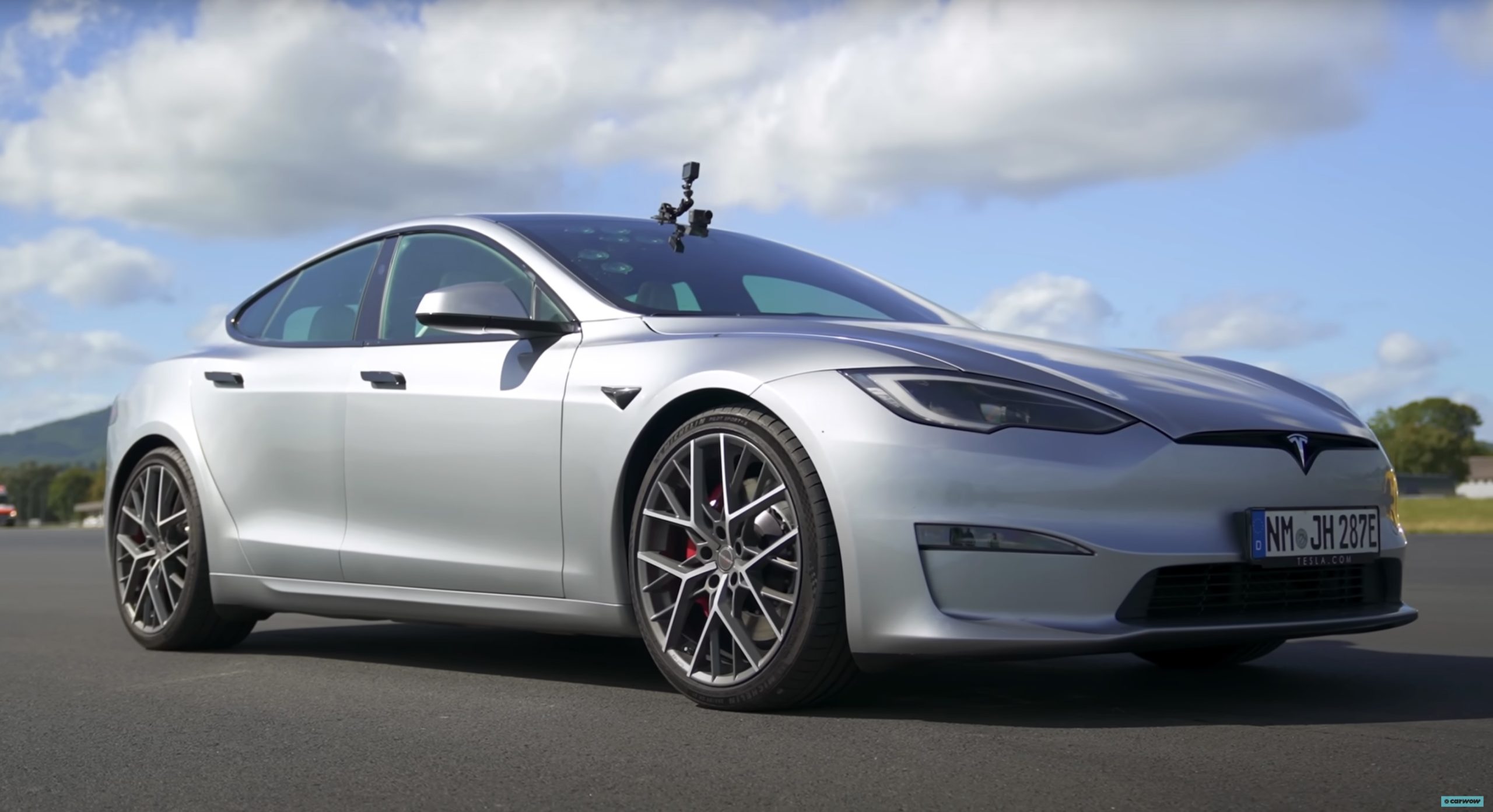
The Tesla Model S Plaid has been around for some time. Today, it is no longer the world’s quickest four-door electric sedan, nor is it the most powerful. As per a recent video from motoring YouTube channel Carwow, however, it seems like the Model S Plaid is still more than a match for some of its newer and more powerful rivals.
The monster from China
The Xiaomi SU7 Ultra is nothing short of a monster. Just like the Model S Plaid, it features three motors. It also has 1,548 hp and 1,770 Nm of torque. It’s All Wheel Drive and weighs a hefty 2,360 kg. The vehicle, which costs just about the equivalent of £55,000, has been recorded setting an insane 7:04.957 at the Nurburgring, surpassing the previous record held by the Porsche Taycan Turbo GT.
For all intents and purposes, the Model S Plaid looked outgunned in Carwow’s test. The Model S Plaid is no slouch with its three motors that produce 1,020 hp and 1,420 Nm of torque. It’s also a bit lighter at 2,190 kg despite its larger size. However, as the Carwow host pointed out, the Model S Plaid holds a 7:25.231 record in the Nurburgring. Compared to the Xiaomi SU7 Ultra’s record, the Model S Plaid’s lap time is notably slower.
Real-world tests
As could be seen in Carwow’s drag races, however, Tesla’s tech wizardry with the Model S Plaid is still hard to beat. The two vehicles competed in nine races, and the older Model S Plaid actually beat its newer, more powerful counterpart from China several times. At one point in the race, the Xiaomi SU7 Ultra hit its power limit due to its battery’s temperature, but the Model S Plaid was still going strong.
The Model S Plaid was first teased five years ago, in September 2020 during Tesla’s Battery Day. Since then, cars like the Lucid Air Sapphire and the Xiaomi SU7 Ultra have been released, surpassing its specs. But just like the Model Y ended up being the better all-rounder compared to the BYD Sealion 7 and the MG IM6, there is just something about Tesla’s tuning and refinement that makes raw specs seem not as game-changing.
Check out Carwow’s Model S Plaid vs Xiaomi SU7 drag race video below.
Lifestyle
500-mile test proves why Tesla Model Y still humiliates rivals in Europe
On paper, the BYD Sealion 7 and MG IM6 promised standout capabilities against the Model Y.
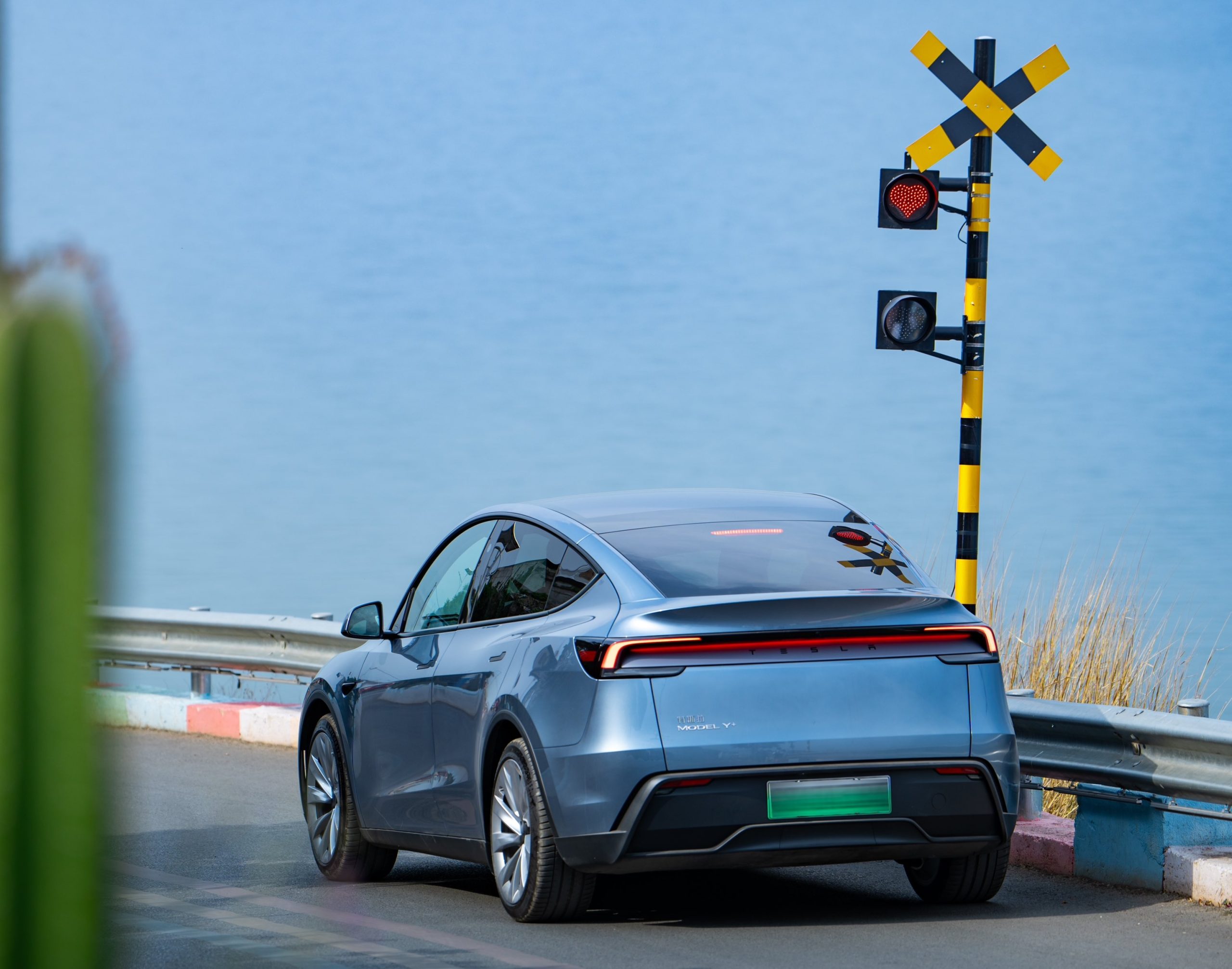
BYD is seeing a lot of momentum in Europe, so much so that mainstream media has taken every opportunity to argue that the Chinese automaker has beaten Tesla in the region. But while BYD sales this year in Europe are rising and Tesla’s registrations remain challenged, the raw capabilities of vehicles like the Model Y are difficult to deny.
This was highlighted in a 500-mile challenge by What Car? magazine, which showed that the new Tesla Model Y is more efficient, cheaper to run, and more reliable than rivals like the BYD Sealion 7, and even the nearly 400 KW-charging MG IM6.
Range and charging promises
On paper, the BYD Sealion 7 and MG IM6 promised standout capabilities against the Model Y. The Sealion 7 had more estimated range and the IM6 promised significantly faster charging. When faced with real-world conditions, however, it was still the Model Y that proved superior.
During the 500-mile test, the BYD nearly failed to reach a charging stop, arriving with less range than its display projected, as noted in a CarUp report. MG fared better, but its charging speeds never reached its promised nearly-400 kW charging speed. Tesla’s Model Y, by comparison, managed energy calculations precisely and arrived at each stop without issue.
Tesla leads in areas that matter
Charging times from 25% to 80% showed that the MG was the fastest at 17 minutes, while Tesla and BYD were close at 28 and 29 minutes, respectively. Overall efficiency and cost told a different story, however. The Model Y consumed 19.4 kWh per 100 km, compared to 22.2 for MG and 23.9 for BYD. Over the full trip, Tesla’s charging costs totaled just £82 thanks to its supercharger network, far below BYD’s £130 and MG’s £119.
What Car? Magazine’s testers concluded that despite BYD’s rapid sales growth and the MG IM6’s seriously impressive charging speeds, Tesla remains the more compelling real-world choice. The Model Y just offers stability, efficiency, and a proven charging infrastructure through its Supercharging network. And as per the magazine’s hosts, the Model Y is even the cheapest car to own among the three that were tested.
Watch What Car? Magazine’s 500-mile test in the video below.
Lifestyle
Tesla Cybertruck slapped with world’s least intimidating ticket, and it’s pure cringe
One cannot help but cringe and feel second-hand embarrassment at the idea of a person just driving around with a stack of these babies.
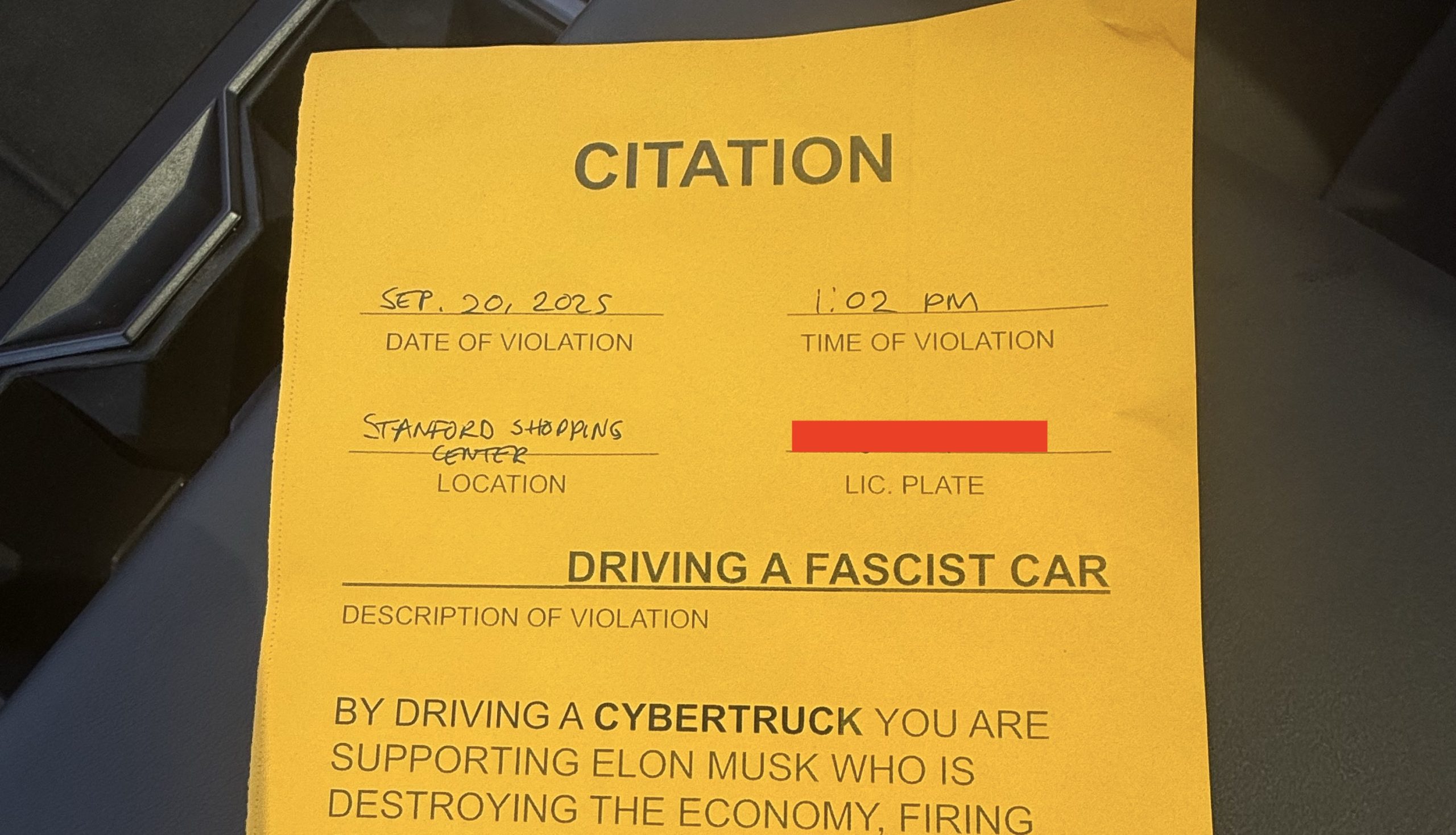
A Cybertruck parked at Stanford Shopping Center in California was recently hit with what might be the most try-hard piece of paper ever slipped under a wiper blade: a “fake citation” accusing the driver of supporting a “fascist car.”
The note, shared on X by Tesla staff program manager Ryan Torres, quickly made the rounds on X, where it quickly gained attention as an example of how not to protest.
The world’s least intimidating ticket
According to the citation, the supposed “violation” was “driving a fascist car.” The remedial action? Take the bus, call an Uber, or ride a bike. The note also dubbed Elon Musk a “chainsaw-wielding Nazi billionaire.” Now, protests against Tesla and Elon Musk have become commonplace this year, but one cannot help but cringe and feel second-hand embarrassment at the idea of a person just driving around with a stack of fake anti-Tesla/Musk citations.
Torres pointed out the irony himself in his post on X. Tesla currently employs over 140,000 Americans, and SpaceX has put the U.S. firmly back at the top of space technology. As Torres put it, maybe the person behind the world’s least intimidating ticket should “read a book on innovation before vandalizing” other people’s property.
Peak performative clownery
Not to mention that the fake ticket’s logic collapses under its own weight. EVs like the Cybertruck are literally designed to reduce emissions, not “destroy the economy.” If anything, Tesla has bolstered the United States’ economy by fueling jobs in engineering, manufacturing, and clean energy. It’s not the first time a Tesla has been the target of vandalism or politically charged notes, but this one stands out for sheer cringe value.
Torres summed it up neatly: “Peak clownery.” On that point, at least, the citation earns full marks. In a way, though, perhaps cringe fake tickets are not as bad as the literal firebombs that were being thrown at Tesla stores and cars earlier this year because some critics were gleefully misinformed about Elon Musk.








